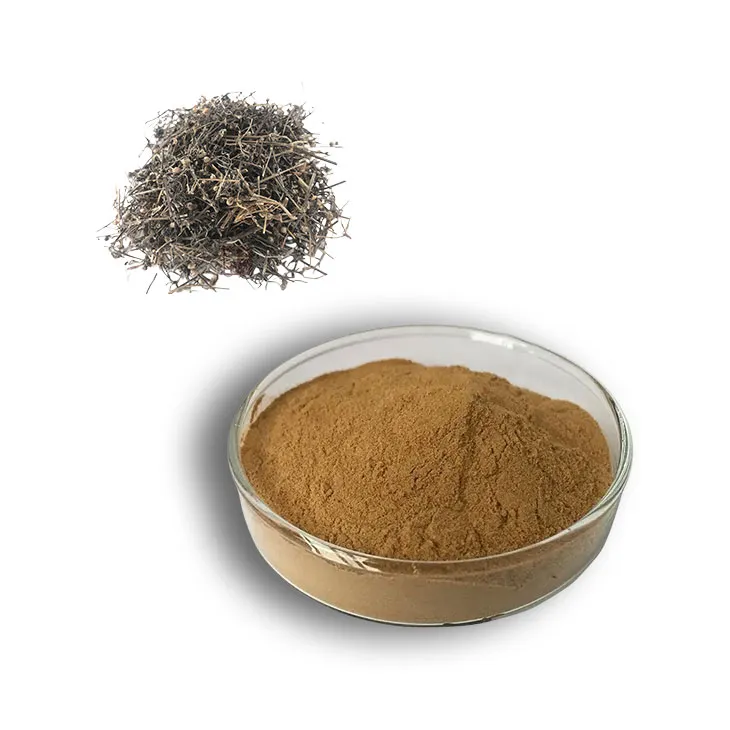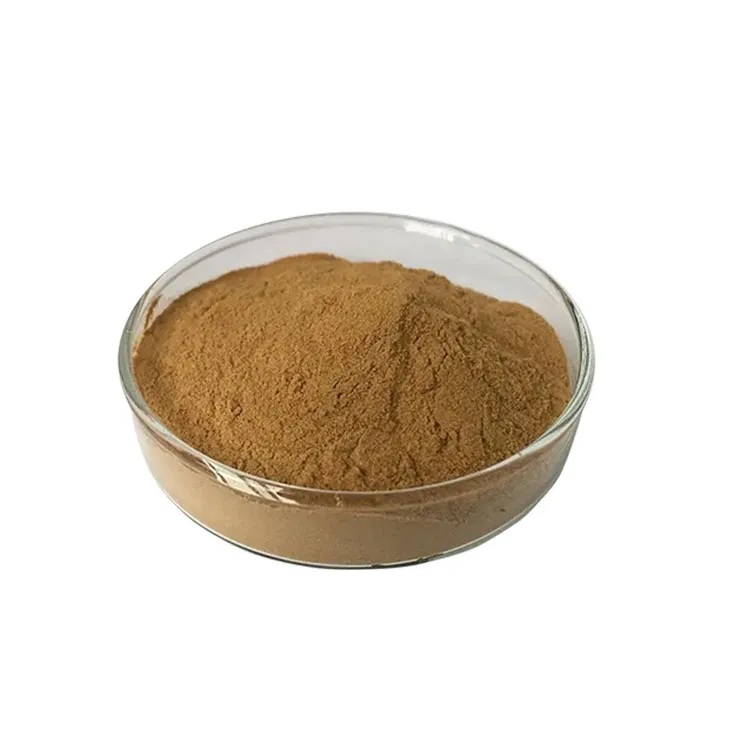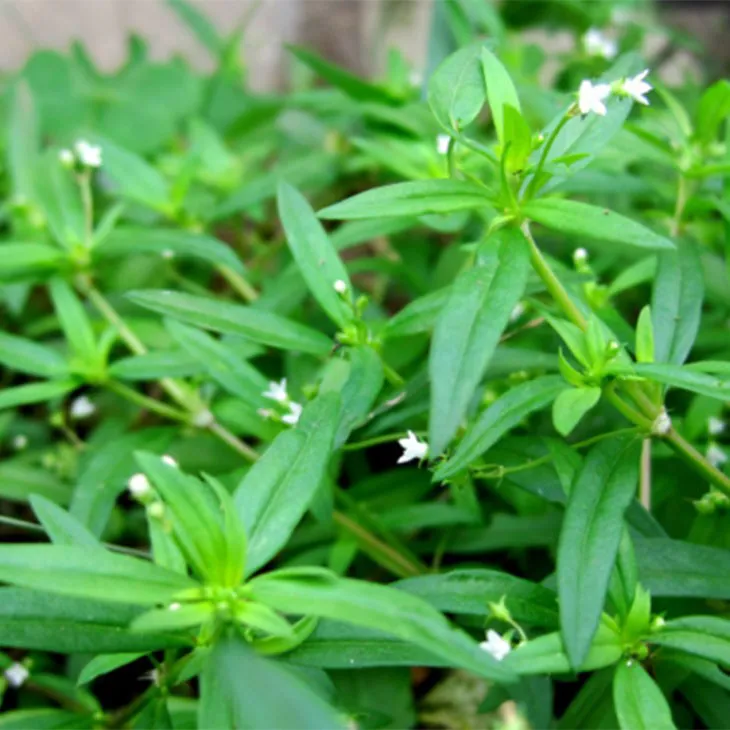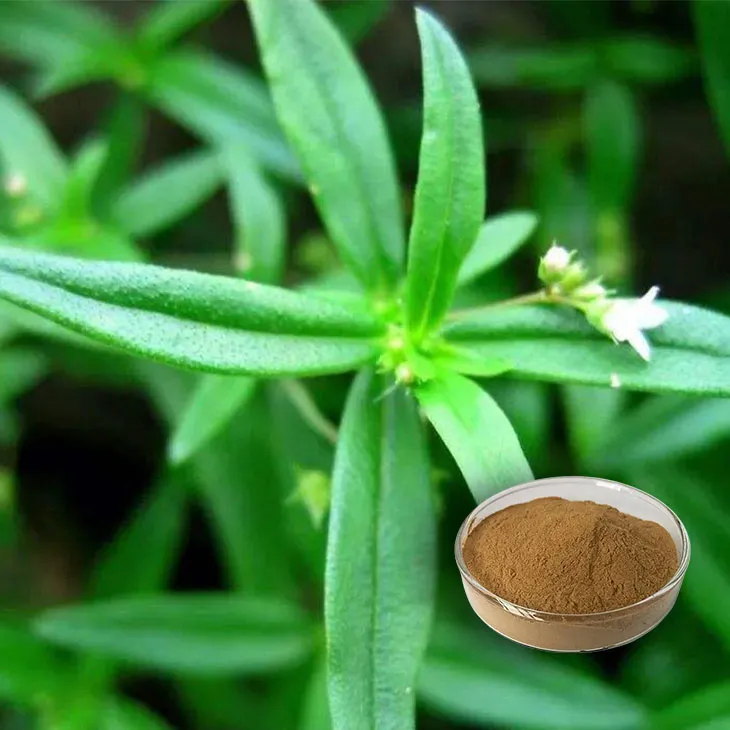- 0086-571-85302990
- sales@greenskybio.com
Best Answers to 7 Key Questions about Hedyotis Diffusa Extract.
2024-12-10

1. Medicinal Properties of Hedyotis Diffusa Extract
Hedyotis Diffusa, also known as "Bai Hua She She Cao" in Chinese, has been used in traditional medicine for centuries. The extract of this herb is believed to possess a wide range of medicinal properties. One of the most notable properties is its anti - inflammatory effect. Inflammation is a natural response of the body to injury or infection, but chronic inflammation can lead to various diseases such as arthritis, heart disease, and cancer. Studies have shown that certain compounds in Hedyotis Diffusa Extract can inhibit the production of inflammatory mediators, thereby reducing inflammation.
Another important property is its antioxidant activity. Free radicals are unstable molecules that can cause damage to cells, DNA, and proteins in the body. Antioxidants are substances that can neutralize these free radicals. Hedyotis Diffusa Extract contains antioxidants such as flavonoids and phenolic compounds. These antioxidants can scavenge free radicals, protecting the body from oxidative stress and reducing the risk of developing diseases related to oxidative damage, such as neurodegenerative diseases and aging - related disorders.
Moreover, Hedyotis Diffusa extract has been investigated for its potential anticancer properties. Some research suggests that it may be able to inhibit the growth and proliferation of cancer cells. However, it should be noted that while these findings are promising, more in - depth studies are needed to fully understand its mechanism of action and its potential as a cancer treatment.

2. The Process of Extraction
The extraction of Hedyotis Diffusa extract involves several steps. First, the raw material, which is the dried Hedyotis Diffusa herb, needs to be collected. It is important to ensure that the herb is of high quality and free from contaminants. The collected herb is then typically washed to remove any dirt or impurities.
After washing, the next step is the extraction process itself. There are different methods of extraction, with solvent extraction being one of the most commonly used. In solvent extraction, a suitable solvent such as ethanol or water is used. The choice of solvent depends on various factors, including the desired compounds to be extracted and the safety and cost - effectiveness of the solvent. For example, ethanol is often preferred as it can extract a wide range of bioactive compounds from the herb.
Once the solvent is added to the herb, the mixture is usually heated and stirred to facilitate the extraction process. This allows the bioactive compounds in the herb to dissolve into the solvent. After a certain period of time, the mixture is filtered to separate the liquid extract from the solid residue. The liquid extract may then be further processed, such as through concentration or purification steps, to obtain a more concentrated and pure Hedyotis Diffusa extract.

3. Quality Control of the Extract
Quality control is crucial in the production of Hedyotis Diffusa extract. One of the first aspects of quality control is the identification and authentication of the raw material. Since there are many species that may look similar to Hedyotis Diffusa, it is essential to use accurate identification methods to ensure that the correct herb is being used. This can involve techniques such as morphological identification, microscopic examination, and DNA - based identification methods.
During the extraction process, the quality of the extract needs to be monitored. Parameters such as the concentration of the extract, the purity of the bioactive compounds, and the presence of any contaminants need to be measured. For example, high - performance liquid chromatography (HPLC) can be used to analyze the composition of the extract and determine the concentration of key bioactive compounds. This helps to ensure that the extract contains the desired amount of active ingredients and is free from harmful substances.
In addition, the stability of the extract over time also needs to be considered. The extract may be subject to degradation due to factors such as temperature, light, and moisture. Therefore, appropriate storage conditions need to be established to maintain the quality of the extract. This may include storing the extract in a cool, dry place, away from direct sunlight, and in airtight containers.

4. Impact on Human Health
The impact of Hedyotis Diffusa extract on human health is multi - faceted. As mentioned earlier, its anti - inflammatory and antioxidant properties can have a positive impact on overall health. By reducing inflammation, it can help alleviate symptoms of inflammatory diseases such as joint pain and swelling in arthritis patients.
In terms of its potential anticancer effects, if further research confirms its efficacy, it could potentially be used as an adjunct treatment in cancer therapy. However, it is important to note that it should not be considered a substitute for conventional cancer treatments at present.
Hedyotis Diffusa extract may also have benefits for the immune system. Some studies suggest that it can enhance the function of the immune system, helping the body to better defend against infections. This could be particularly useful for individuals with weakened immune systems, such as the elderly or those with chronic diseases.

5. Use in Traditional and Modern Medicine
In traditional medicine, Hedyotis Diffusa has been used for a variety of ailments. In Chinese traditional medicine, it has been used to treat conditions such as heat - related disorders, including fevers, and certain types of infections. It was often prepared as a decoction, where the dried herb was boiled in water and the resulting liquid was consumed.
In modern medicine, the extract of Hedyotis Diffusa is being studied more intensively. Scientists are trying to isolate and identify the specific bioactive compounds in the extract and understand their mechanisms of action. This knowledge could potentially lead to the development of new drugs or therapeutic agents. For example, if the anticancer properties of the extract are fully elucidated, it could be used as a basis for the development of novel cancer drugs.
However, it is also important to bridge the gap between traditional and modern medicine. While traditional uses provide valuable clues, modern scientific methods are needed to validate and optimize these uses. This may involve conducting clinical trials to determine the safety and efficacy of Hedyotis Diffusa extract in treating specific diseases.
6. Ethical Considerations in its Extraction
Ethical considerations play an important role in the extraction of Hedyotis Diffusa. One of the main concerns is the sustainable harvesting of the herb. Over - harvesting can lead to the depletion of wild populations of Hedyotis Diffusa, which can have negative impacts on the ecosystem. Therefore, it is essential to develop sustainable harvesting practices. This may include setting quotas for the amount of herb that can be harvested, promoting the cultivation of Hedyotis Diffusa in a controlled environment, and protecting its natural habitats.
Another ethical consideration is the fair trade of the herb and its extract. This involves ensuring that the farmers and collectors who supply the raw material are paid fairly for their work. It also means that the production and trade of the extract should be carried out in a transparent and ethical manner, with proper regulations in place to prevent exploitation.
In addition, ethical research practices are necessary when studying Hedyotis Diffusa extract. This includes obtaining informed consent from study participants in clinical trials, ensuring the proper handling of animals in pre - clinical studies, and accurately reporting research findings without bias.
7. Emerging Trends related to it
There are several emerging trends related to Hedyotis Diffusa extract. One trend is the use of advanced extraction techniques. For example, supercritical fluid extraction is being explored as an alternative to traditional solvent extraction methods. Supercritical fluid extraction has the advantage of being more environmentally friendly and can often produce a higher - quality extract with a more pure composition of bioactive compounds.
Another trend is the combination of Hedyotis Diffusa extract with other natural products or drugs. This approach, known as combination therapy, may enhance the therapeutic effects of the extract. For example, combining it with other herbs with complementary medicinal properties or with conventional drugs may lead to more effective treatment of diseases.
There is also an increasing interest in the global market for Hedyotis Diffusa extract. As more research is conducted on its health benefits, the demand for the extract is likely to increase. This may lead to more investment in the production and research of Hedyotis Diffusa extract, as well as the development of new products containing the extract.
FAQ:
Question 1: What are the main medicinal properties of Hedyotis Diffusa Extract?
The Hedyotis Diffusa Extract is known to possess several medicinal properties. It has antioxidant properties, which can help in combating oxidative stress in the body. It also shows anti - inflammatory effects, potentially useful in treating various inflammatory conditions. Additionally, it may have some antimicrobial properties, which can be beneficial in fighting against certain types of bacteria or fungi.
Question 2: How is the extraction process of Hedyotis Diffusa Extract carried out?
The extraction of Hedyotis Diffusa Extract typically involves several steps. First, the fresh or dried Hedyotis Diffusa plants are collected. Then, they are usually ground into a fine powder. Solvents such as ethanol or water are often used for the extraction process. The plant material is soaked in the solvent for a certain period, and then the mixture is filtered to obtain the extract. Further purification steps may also be involved to get a more refined extract.
Question 3: What are the key aspects of quality control in Hedyotis Diffusa Extract?
Quality control of Hedyotis Diffusa Extract is crucial. One key aspect is the identification and authentication of the raw material, ensuring that it is indeed Hedyotis Diffusa. Purity of the extract is also important, which involves checking for the absence of contaminants such as heavy metals, pesticides, or other unwanted substances. Standardized methods are used to measure the active compounds in the extract to ensure consistency in its potency and quality.
Question 4: How does Hedyotis Diffusa Extract impact human health?
Hedyotis Diffusa Extract can impact human health in multiple ways. As mentioned earlier, its antioxidant and anti - inflammatory properties can contribute to overall health. It may help in reducing the risk of chronic diseases associated with oxidative stress and inflammation. Some studies suggest that it may also have an impact on the immune system, potentially enhancing its function. However, more research is needed to fully understand all of its effects on human health.
Question 5: What is the role of Hedyotis Diffusa Extract in traditional and modern medicine?
In traditional medicine, Hedyotis Diffusa has been used for centuries to treat various ailments, such as fevers, infections, and inflammatory conditions. In modern medicine, researchers are exploring its potential uses more scientifically. It is being studied for its possible applications in drug development, particularly in the areas of anti - cancer, anti - microbial, and anti - inflammatory drugs. However, it is still in the research and development stage in modern medicine.
Question 6: Are there any ethical considerations in the extraction of Hedyotis Diffusa?
Yes, there are ethical considerations in the extraction of Hedyotis Diffusa. One concern is over - harvesting, which can lead to the depletion of wild populations. Sustainable harvesting methods need to be implemented to ensure the long - term availability of the plant. Also, proper compensation and fair trade practices should be considered when sourcing the plant from local communities who may be involved in its collection.
Related literature
- The Medicinal Properties of Hedyotis Diffusa: A Comprehensive Review"
- "Extraction Techniques and Quality Assessment of Hedyotis Diffusa Extract"
- "Hedyotis Diffusa in Traditional and Modern Medicine: Bridging the Gap"
- ▶ Hesperidin
- ▶ citrus bioflavonoids
- ▶ plant extract
- ▶ lycopene
- ▶ Diosmin
- ▶ Grape seed extract
- ▶ Sea buckthorn Juice Powder
- ▶ Beetroot powder
- ▶ Hops Extract
- ▶ Artichoke Extract
- ▶ Reishi mushroom extract
- ▶ Astaxanthin
- ▶ Green Tea Extract
- ▶ Curcumin Extract
- ▶ Horse Chestnut Extract
- ▶ Other Problems
- ▶ Boswellia Serrata Extract
- ▶ Resveratrol Extract
- ▶ Marigold Extract
- ▶ Grape Leaf Extract
- ▶ blog3
- ▶ blog4
- ▶ blog5
-
Eucommia Ulmoides Extract
2024-12-10
-
Beetroot Powder
2024-12-10
-
Lotus leaf extract
2024-12-10
-
Nettle Root Extract
2024-12-10
-
Yellow Pine Extract
2024-12-10
-
Konjac Powder
2024-12-10
-
Cocoa Extract
2024-12-10
-
Genistein
2024-12-10
-
Sophora Flavescens Root Extract
2024-12-10
-
White Willow Bark Extract
2024-12-10





















